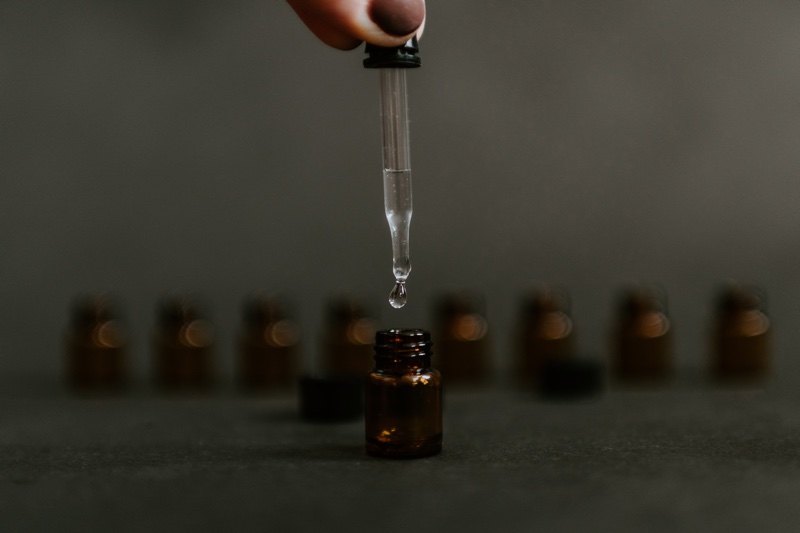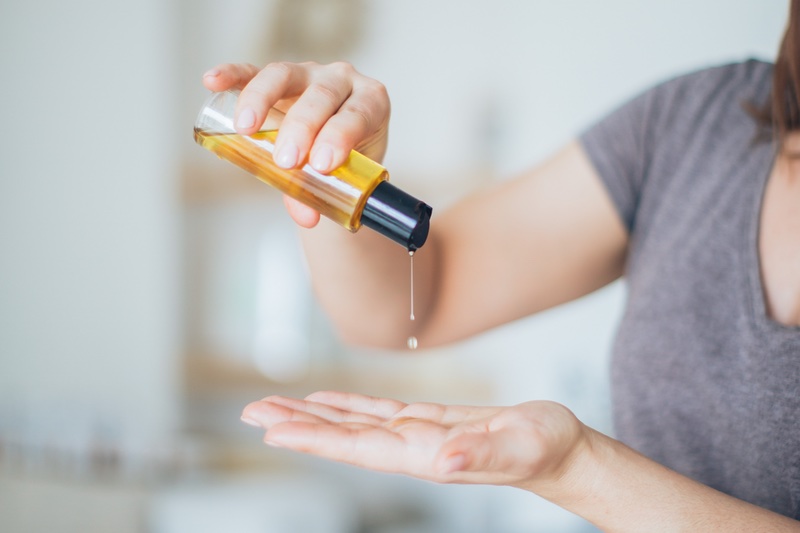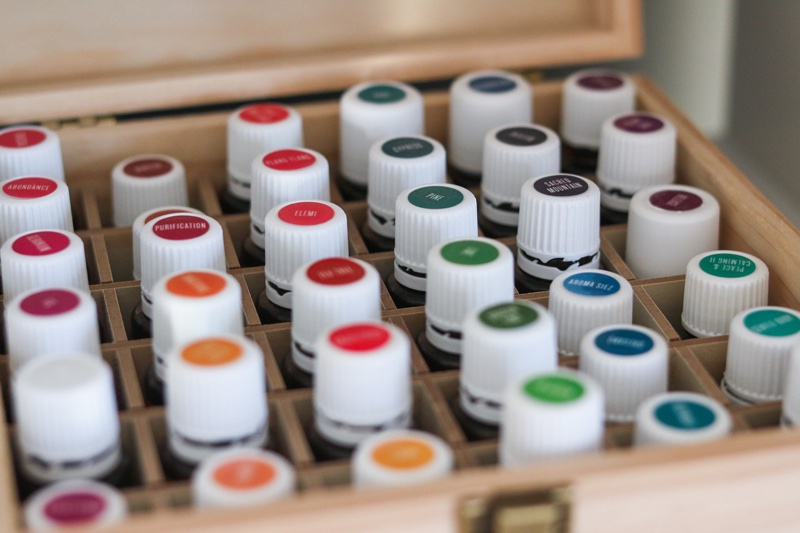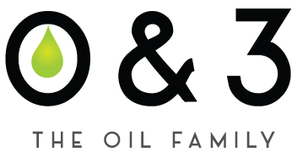In a time before the coronavirus pandemic snatched the world’s attention, the beauty arena was gearing up for a year with a different dominating word – transparency. The beginning of the new decade was destined to be the year that beauty brands didn’t just hone in on their eco-credentials, but were crystal clear about their supply chains, sourcing operations and ingredients lists.
As brands have learnt hard and fast over the last decade it is no longer enough to market a ‘secret blend’ in cosmetics or fob off consumers with hundreds of ingredients. Shoppers want to know the skin care benefits, if it’s good for the environment, how it’s bad for the environment, how the brand is transparent and what it’s doing to end world hunger.
But, in true 2020 style, this year has instead presented a worrying insight into the underhand works of some cosmetic suppliers of natural oils.
What sparked questions surrounding oil purity in the beauty industry was a study undertaken by Selina Wang, a Cooperative Extension specialist in the Department of Food Science and Technology at the University of California, Davis. She published findings from the food industry that uncovered more than 80% of avocado oil was either ‘mislabelled, rancid or adulterated’.
Speaking to Cosmetics Business, she explains the reasons why suppliers can get away with this manipulation. “The issue here is that there are no standards, so you could technically put what you want on the label. With the study we wanted to raise awareness and really push the [US] federal government to pay attention.”
In the case of avocado oil, Wang notes that soybean and high oleic sunflower and safflower are used in replacement of pure avocado oil due to their similar fingerprint.
“These people are very good chemists, they know what they’re doing, they will use an oil that is cheaper, but harder for it to be detected.”
But the question remains, is this behaviour spilling into the beauty sector? Cosmetics Business asked beauty giant Elemis about its experience sourcing natural oils.
“Natural oils have always been an important element in Elemis formulations and, as a result, we source many different oils ranging from well-known commodity oils through to unusual, bespoke oils,” Elemis’ co-founder Oriele Frank tells Cosmetics Business.
“A critical part of this sourcing is to have open and transparent relationships with the supplier base in order to collect as much information about the oils’ origin and quality before we approve them for use.”
However, Frank admits that, previously, suppliers have attempted to sell the brand natural oils which are not what they seem.
“We have, in the past, been offered oils that appear to be a cost effective, alternative supply of the same oil. Closer scrutiny has revealed that the oils aren’t quite what their description implies.”

Meanwhile, powerhouse brand Lush also experienced similar deceptions when it first launched. “In the very early days, as a young and fairly small company, we bought the majority of our materials via distributors. Upon sending selected essential oils off for testing, we discovered that some of these were being adulterated,” says Steph Newton, Lush’s Creative Buyer.
This begs the question, how are authorities allowing natural oils to be adulterated and marketed as a different oil, and which ones are going undetected? Cosmetics Business asked Simon Corner, Sales & Marketing Director at ingredients supplier Kerfoot, what the regulations say.
“The challenge is that there are no hard and fast regulations surrounding oil purity in cosmetics or personal care. Brands simply have to trust that they’re getting what they pay for.
“Unfortunately, without a supplier that puts focus on authenticity, this cannot always be guaranteed, and it’s the consumer that pays the price. In a commercial environment that’s as fierce as it has ever been, no business can afford to put trust at risk.”
But the UK’s Cosmetic, Toiletry and Perfumery Association (CTPA) insists the regulations in place are enough to keep consumers safe and prevent manufacturers buying adulterated goods.
The authority’s Director-General, Emma Meredith, says: “All cosmetic products and their ingredients must be safe. The body cannot determine if something is from a natural or a non-natural source, and it is not true that ‘natural’ ingredients are inherently safer than ‘non-natural’ ingredients. Therefore, oils are subject to the same strict safety assurance process as all other ingredients before they can be used in cosmetics.
“If the Cosmetics Regulation specifies any restrictions for such ingredients, whether on concentration or labelling requirements, manufacturers must comply with these. If there are none stated, then the fundamental principle that the ingredient must be safe as used applies.
“As for essential oils, other natural oils need to be of a purity that is safe to use in a cosmetic product.”
How do essential oils compare?
With these examples, the industry has demonstrated that there are unethical practices taking place. But is there any foul play also at work in the essential oils category? According to a spokesperson for the Aromatherapy Trade Council, similar underhand operations are taking place.
Commenting on the US market, the spokesperson says: “The FDA cosmetic regulation defines the standard of safety required as being safe for the consumer to use, but does not specify how this is to be achieved.
“Consequently the oils used, for example, in aromatherapy products in the US tend to not be labelled with their botanical names or their chemotypes and this permits oils that smell the same to be interchanged, so there is often confusion as to what is in the bottle.
“Thyme has at least six recognised chemotypes that all smell thyme-like but have differing compositions. The estragole chemotype is potentially carcinogenic and is restricted when used in the EU for that reason, not so in the US.
“In addition, there are other species of plant that smell like thyme and I have seen this oil substituted for a more typical thyme by at least one US supplier of bulk and retail products.”
They also reveal to Cosmetics Business that there is one particular test the industry is not looking out for when it comes to essential oils.
Lemon oil, a by-product of the juicing industry, must be extracted from the peel in order to use the oil in cosmetics and is traditionally blended with additional lemon terpenes [a class of organic compounds] from the peel oil to enhance the flavour.

However, according to the spokesperson, many manufacturers have adopted cheaper terpenes from oranges, as opposed to the much more expensive lemon.
“This is fraud, and whilst it is not a health risk and in most cases the product functions in the same way, it is nonetheless fraud. The food industry has developed specific techniques to detect it and this is routinely tested for by the major producers.
“The cosmetics industry is, by and large, unaware of this issue and would not test for this kind of adulteration.”
In response, the FDA sent Cosmetics Business this statement:
“The FDA does not have specific regulations on oil purity in cosmetic products. It is important to note that it’s the cosmetic manufacturer’s responsibility to ensure the safety of their products.
“Additionally, not all skin or personal care products that contain oils are regulated as cosmetics, or they may be regulated as both cosmetics and drugs.”
Via the authority’s website it also notes: “Nearly everyone involved in cosmetics in interstate commerce, such as manufacturers, packers, distributors and retailers, is responsible for assuring that he or she is not dealing in products that are adulterated or misbranded, even if someone else caused the adulteration or misbranding in the first place.
“If you introduce it into interstate commerce or receive it in interstate commerce, you are responsible. The law applies to components and packaging, as well as to finished products.”
Keeping out crooks
A quick Google search will give an aspiring beauty brand hundreds of suppliers of cosmetic oils, most kosher, some likely not. So, how can a beauty brand ensure they stay clear of shifty suppliers?
New Zealand-based skin care brand Antipodes only buys its oils from local and trusted suppliers. “We only work with New Zealand suppliers who are part of our key ecosystem. That means we know them and work closely with them to ensure we get high quality New Zealand pressed oils, and we have full certification and MSDS [material safety data sheets] for each ingredient,” says the brand’s founder, Elizabeth Barbalich.
Meanwhile, Lush spoke about its collaborative work with suppliers in order to get the right ingredients. “When we are exploring a new source for a natural oil, or any other ingredient, we will test the material in our products to ensure it meets our quality standards,” adds Newton.
“We work with a great network of suppliers and agree the specifications for any materials we buy from them; should any concerns arise, we work collaboratively to address these.”
But Thomas Kerfoot, founder and Commercial Director of British natural oil provider O&3, believes there should be an onus on the supplier to ensure that what beauty brands are getting is what it says on the tin.
“In terms of manufacturing, we do supply chain analysis and auditing, and essentially make sure what ingredients we offer are being used in the process,” he says.
“Let’s take avocado oil, for example, we follow the supply chain from the processing of the avocados through to the pressing, so supply chain auditing is crucial. The second part is doing the fatty acid analysis using templates available, such as the British pharmacopoeia specifications to make sure it matches what it should.
“Any reputable cosmetic manufacturer declares exactly what’s in their products.”

Meanwhile, Corner notes there are certifications that brands can look out for to determine the oils they are buying. “Without linear across-the-board regulation on oil purity, the next best thing is accreditation. To confirm that suppliers treat quality standards as a top priority, brands can look to certification, such as COSMOS, BRC or Soil Association accreditation.”
These are even available in the US market with accreditation of the NSF/ANSI 305 standard and logo, which allows brands to claim their products ‘contain organic ingredients’ if they have a minimum content of 70% organic.
But, at the risk of seeming despondent, with lack of standardisation for oil purity, particularly in the US, brands are left at the mercy of suppliers’ and manufacturers’ ethical standing, and leaving brands to suffer the repercussions.
Wang does believe there are suppliers that are trying to be transparent, but without the necessary navigation from governing bodies it makes it difficult for companies to be certain.
“I think a lot of the producers out there are probably trying to source from a reliable supplier that they can trust, but it makes it hard given they have nothing they can go by, such as standards.
“It’s like playing a board game where there are no rules, it makes it very hard to play.”

